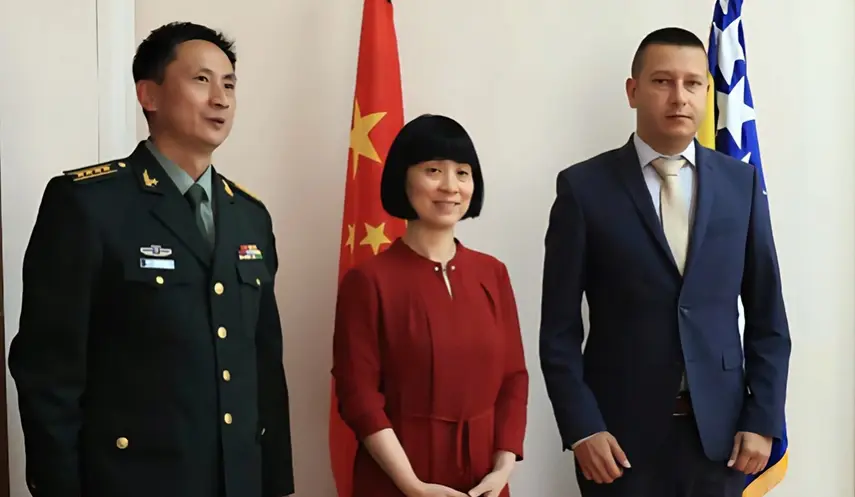DODIK: REPUBLIKA SRPSKA THE VOICE OF THOSE WHO ARE SILENCED IN JASENOVAC
Republika Srpska - president - Jasenovac - Dodik
04/22/2025
13:53
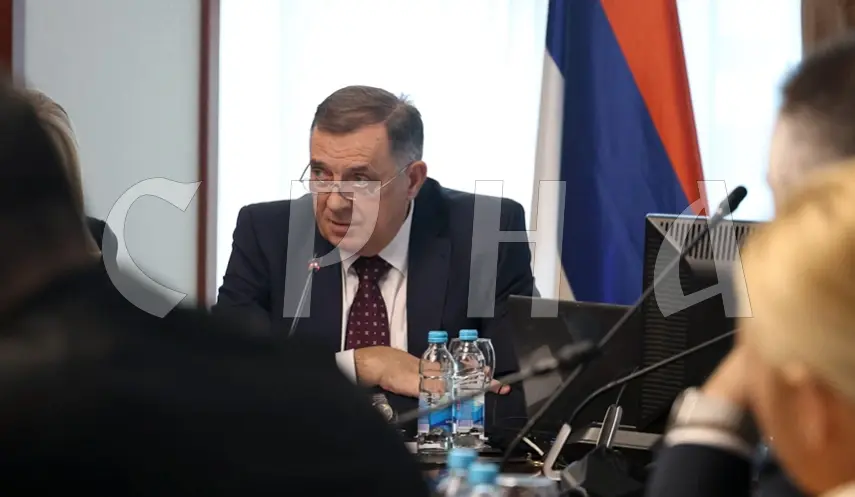
BANJA LUKA, APRIL 22 /SRNA/ - Republika Srpska President Milorad Dodik has pointed out for SRNA that it is the Serb people’s obligation to talk about the Ustasha concentration camp Jasenovac, remind, point out and oppose every time anyone's attempt to relativize the evil of Jasenovac, falsify facts and renew the Ustasha ideology.
"It is our duty to replace silence with the truth, because when Serbs remain silent, others write history not to pass it on, but to erase us from it," said Dodik.
Dodik emphasized that in the 90s of the 20th century, Serbs were once again victims of the Ustasha ideology, were being killed, tortured and expelled from their homes, because Jasenovac was not talked about.
"That's why Republika Srpska exists. It is our covenant guarantee that the Serb people will never again find themselves in convoys without a voice, without weapons, without hope," emphasized the president of Srpska.
On the occasion of the 80th anniversary of the breakout of the camp inmates from Jasenovac, on this day in 1945, in order to save themselves from the infamous Ustasha "factory of death," the largest in South-Eastern Europe, Dodik told SRNA that the Ustasha began the final liquidation of the camp in April 1945, which meant killing all remaining inmates, destroying the camp archives and burning all the camp's facilities.
"Nevertheless, the traces of the crimes committed by the monsters in Jasenovac had to be covered up first. The Ustasha formed working groups consisted of the camp inmates, with the task of searching for and excavating the previous graves in Donja Gradina, from which they removed and burned the remains of the Jasenovac victims. The ashes of the burned corpses were most often thrown into the Sava River or buried in the ground.
Every day a new group of inmates was being sent to Gradina because those who did the digging the previous day were being killed. The removal of people and materials lasted until April 20, during what time, four large fires could be seen from Gradina that burned continuously both day and night. Everyone in the camp knew that the Ustasha were liquidating the camp and that they would not leave witnesses of their monstrosity alive," emphasized Dodik.
Dodik stated that the remaining inmates could choose between two evils - martyrdom and Ustasha overkill or breakthrough and escape into uncertainty.
"They went for the less evil, the latter, in an attempt to find salvation from Jasenovac, which is often called the `Balkan Auschwitz,` even though it was an even more infamous execution site for Serbs, Roma and Jews, of all ages, men, women, children. No one tried to save them, not even the partisans who were nearby, but they decided to break through on their own, which speaks of their courage and strength, but also their dignity. Although tortured and suffering, they tried to escape from torture and certain death by running away," said Dodik.
He emphasized that, after the Second World War, the communist authorities, with the intention of equalizing the sacrifices and merits for the liberation of the country, did everything to mention Jasenovac as little as possible, to hide the truth, while Josip Broz never saw fit to visit this place of execution and pay his respects to the brutally murdered Serbs, Roma and Jews - the greatest victims during the war.
The president of Srpska emphasized that even today many will not admit the horrors of this camp, as well as the fact that Jasenovac and the Sava are one of the largest, if not the largest, Serb graves.
"Even the representatives of the international community do not want to visit this largest Serb underground city, as if in that way they will reduce the number of victims and all the atrocities committed by the Ustashas in the Second World War. Therefore, I use this opportunity to invite them to come to the Donja Gradin Memorial Zone on April 27, where we will mark 80 years since the breakthrough of the Jasenovac prison camo inmates," said Dodik.
He emphasized that it is also an opportunity, not only to honour the martyrs of Jasenovac - Serbs, Jews and Roma, but also to learn more about the history of the suffering of the Serb people at this place of suffering, because perhaps they would better understand not only the First and Second World Wars, but also the last civil war in BiH.
Dodik also called on the citizens of Republika Srpska, Serbia and the region to attend as many as possible the commemoration of the victims of the genocide-crimes of the NDH in the Jasenovac concentration camp and its largest execution site, Donja Gradina.
"When you come to Donja Gradina, don't just bring flowers - make a decision that we will never again allow either forgetting or indifference. Because forgetting leads to repetition," said Dodik.
Jasenovac, emphasized the president of Srpska, is a never-told story, a place of silence, pain, moans and cries, whose silence hurts and resonates the most.
"Staying silent about these crimes is killing the victims again. The truth has been hidden from us enough, we must tell the truth today, repeat it and we must not allow it to fall into oblivion," emphasized President Dodik.
Dodik emphasized that Republika Srpska is the voice of those who were silenced in Jasenovac.
"As long as Srpska exists, the truth about them will exist," concluded Dodik.
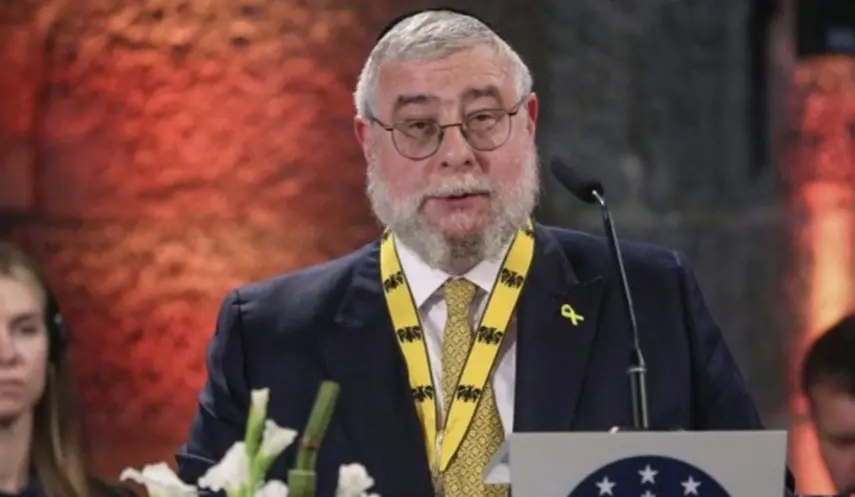
GOLDSCHMIDT: STILL WAITING FOR APOLOGY FROM BiH AUTHORITIES
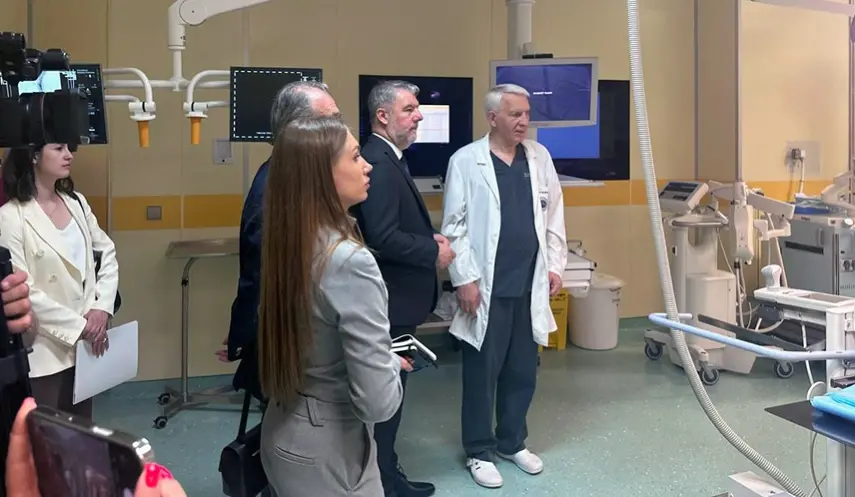
POSSIBLE COOPERATION BETWEEN ALMAZOV RESEARCH CENTRE AND UNIVERSITY CLINICAL CENTRE
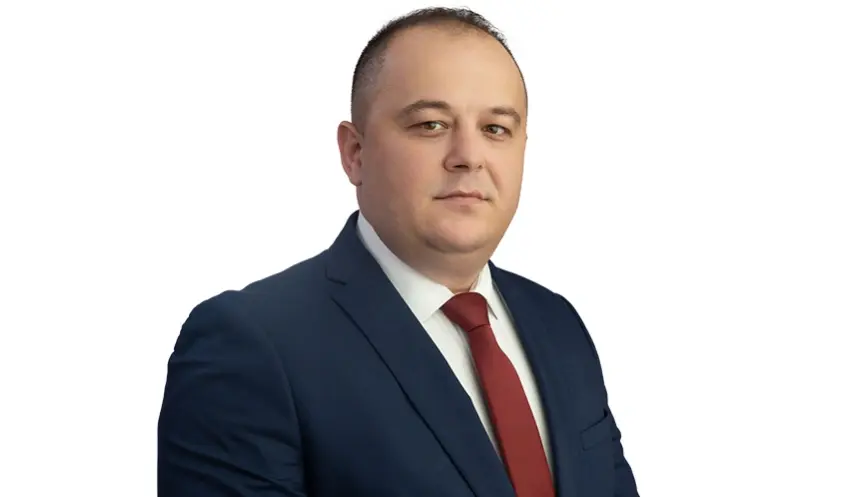
SARAJEVO "TROIKA" WANTS TO WEAKEN SNSD - THE BIGGEST OBSTACLE TO UNITARY BiH
